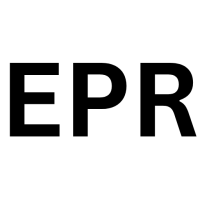Summary
Cut through the green tape
We don't push agendas. At Net Zero Compare, we cut through the hype and fear to deliver the straightforward facts you need for making informed decisions on green products and services. Whether motivated by compliance, customer demands, or a real passion for the environment, you’re welcome here. We provide reliable information—why you seek it is not our concern.
Details
- The United Kingdom
The UK's Extended Producer Responsibility (EPR) regulations apply to organizations that import or supply packaging. Your organization must collect and report packaging data annually if all the following criteria are met:
- Business Type: Your organization is an individual business, subsidiary, or part of a larger group.
- Financial Threshold: Your annual turnover is £1 million or more (based on your most recent financial accounts up to 7 April).
- Packaging Volume: Your organization imported or supplied more than 25 tonnes of packaging to the UK market in the previous calendar year.
- Packaging Activities: Your organization carries out any of the regulated packaging activities (e.g., manufacturing, importing, distributing, or selling packaged goods).
Charities
Deep dive
Background
The UK’s Extended Producer Responsibility (EPR) for packaging is an environmental policy introduced under the Environment Act 2021, with detailed rules contained in the Producer Responsibility Obligations (Packaging and Packaging Waste) Regulations 2024. Effective from January 2025, this framework replaces the older Packaging Waste Regulations 2007, significantly expanding producer obligations to cover the full net costs of managing packaging waste, including collection, recycling, and disposal. The Department for Environment, Food & Rural Affairs (Defra) oversees implementation in England, while devolved administrations manage compliance in Scotland, Wales, and Northern Ireland. Although the UK is no longer an EU member, the EPR aligns with the EU’s Circular Economy Package and its updated Packaging and Packaging Waste Directive (PPWD), reflecting global trends toward shifting waste management costs from taxpayers to producers.
Requirements
Under the EPR regulations, affected companies must report detailed packaging data biannually via the Report Packaging Data (RPD) service, including material type (e.g., plastic, glass), weight, packaging category (primary, secondary, etc.), and "nation data" (where packaging is sold/discarded in the UK). Large producers (turnover ≥£2M handling >50 tonnes/year) submit data by 1 October (Jan–June) and 1 April (July–Dec), while small producers (turnover ≥£1M handling 25–50 tonnes/year) report annually by 1 April. The payment of packaging base fees is a key aspect of compliance with the EPR scheme. The fees directly tie producers' financial obligations to the type and quantity of packaging they place on the market. The base fees vary by material, reflecting differences in recycling costs and environmental impact. As of December 2024, the illustrative base fees for 2025–2026 are:
Plastic: £485/tonne (highest due to low recyclability and high disposal costs)
Fibre-based composites: £455/tonne
Aluminium: £435/tonne
Steel: £305/tonne
Wood: £320/tonne
Glass: £240/tonne
Paper/board: £215/tonne
Other materials (e.g., bamboo, rubber): £280/tonne
Affected entities also need to present evidence notes called Packaging Waste Recycling Notes (PRNs) and Packaging Waste Export Recycling Notes (PERNs). To facilitate reporting, several packaging software options are available such as PackTotal EPR and ForSURE, which automate data categorization, validation, and submission, reducing reliance on manual processes. Affected entities can also use the services of compliance schemes which are registered third parties that help organizations meet the EPR for packaging requirements.
Penalties for Noncompliance
Non-compliance can trigger fixed fines of £1,000 (rising to £1,500 if unpaid within 56 days) for minor breaches like late submissions or failure to maintain records, while serious violations (e.g., failure to register or report) risk variable penalties of up to £3 million. The Environment Agency may also recover enforcement costs and publicly name non-compliant firms, causing reputational harm. Companies must retain records for seven years to withstand audits, with inaccurate data potentially classified as fraud. Enforcement undertakings (voluntary corrective plans) may mitigate penalties, but proactive compliance via software and expert consultation is advised.
Current Status
The UK’s EPR scheme for packaging is now fully active. Financial obligations began in January 2025, and from 2026 fees will become more tightly aligned with each material’s environmental impact and recyclability, commonly referred to as modulated fees based on the Recyclability Assessment Methodology (RAM). As of 11 June 2025, a total of 6,936 large producers have submitted their packaging data for 2024. Despite this strong participation, a range of industry concerns continue to be raised in some quarters. For instance, beverage producers argue that glass is unfairly penalized, since fees are currently determined by weight. Glass containers are significantly heavier than alternatives like aluminium or plastic, meaning they attract disproportionately higher EPR fees. These weight-based fees could push producers away from glass, especially since most plastics and cans are exempt until the Deposit Return Scheme (DRS) becomes operational in 2027 thereby creating a financial incentive to switch to less sustainable materials. Although no major legal challenges have been brought forward against the scheme, there is some ongoing tension around compliance. However, at present there is no indication these issues will lead to the policy’s repeal.
Resources


